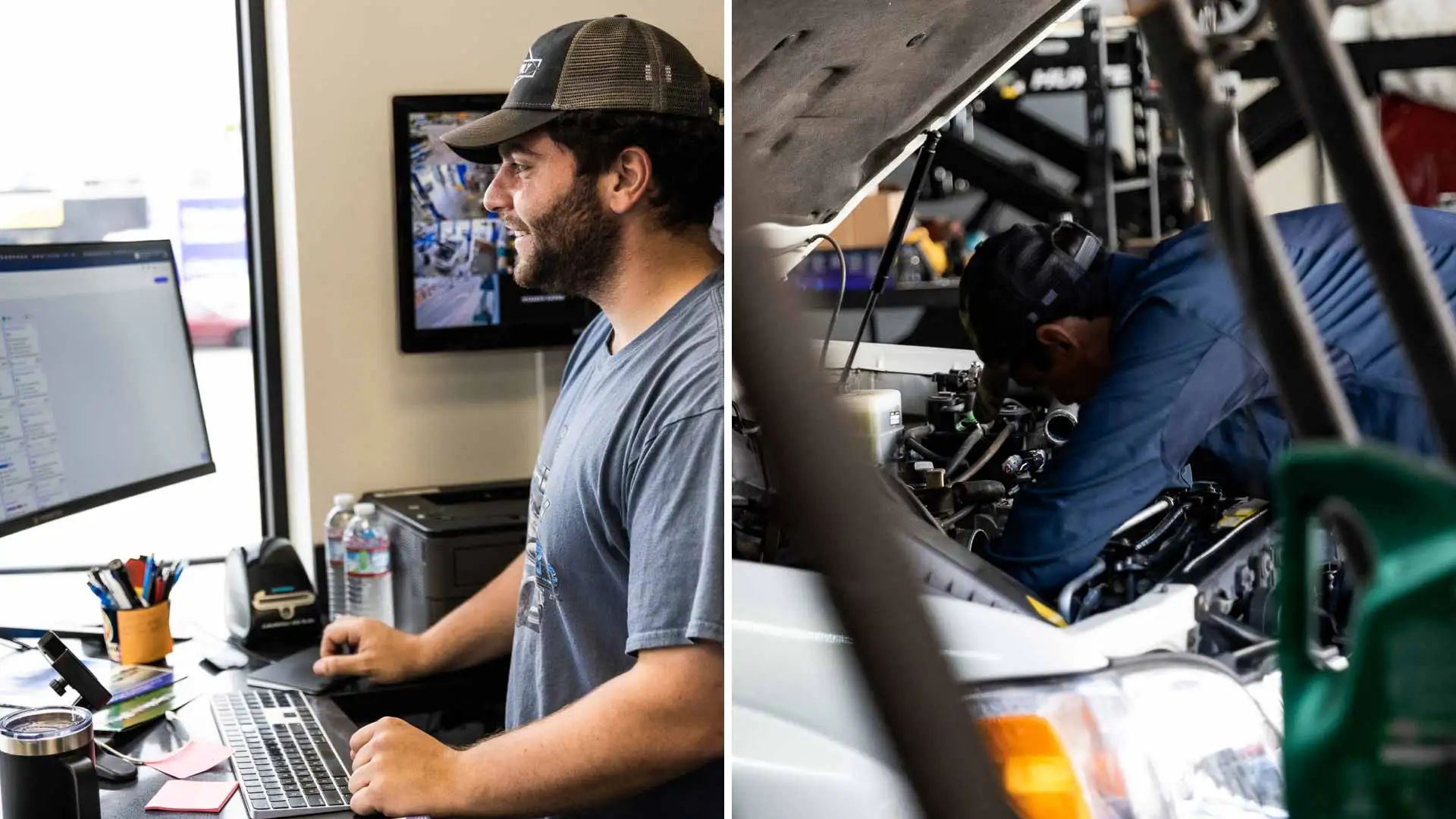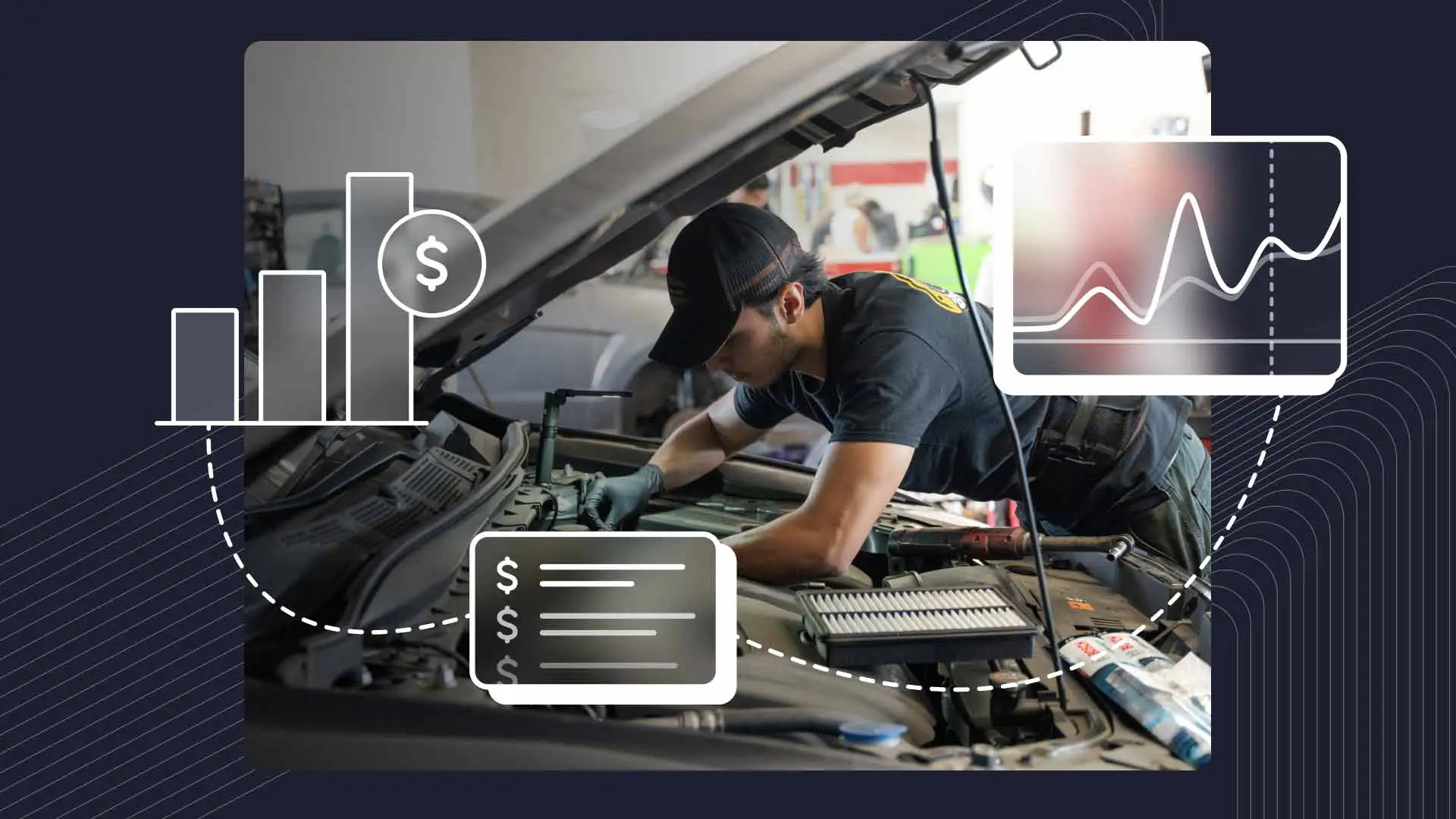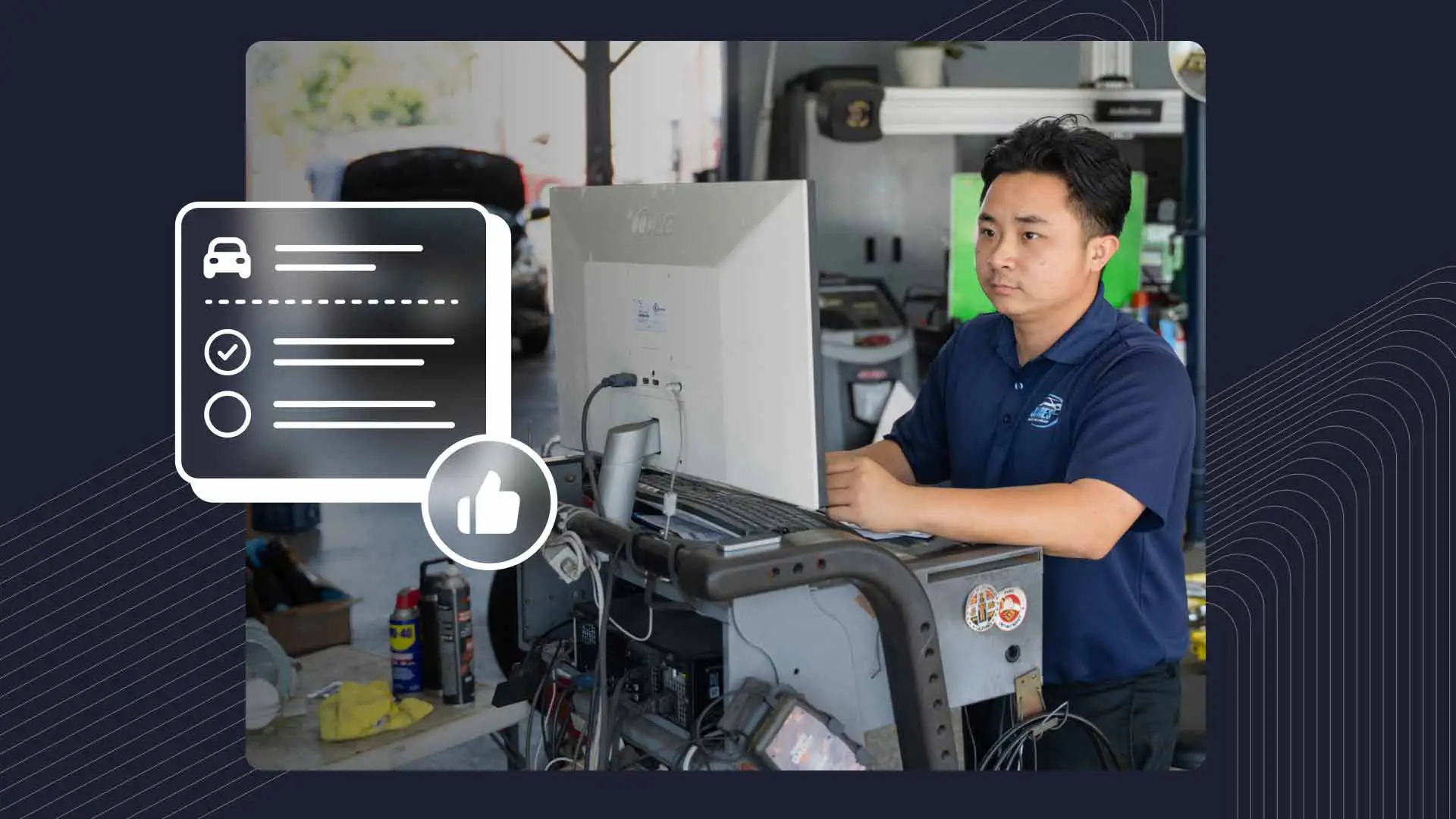A strong team is the backbone of any well-run organization. Within the walls of your auto shop, that team is responsible for delivering first-class repairs and services, contributing to your customers’ satisfaction, and helping to ensure the overall success of your business.
To a degree, your team is your business. Which means it’s not just about having bodies on the shop floor, it's about building a tight-knit unit that works together to complete tasks and accomplish shared goals. Think of it like a pro football squad, where each player has a unique and valuable skill set. Understanding the various roles and responsibilities of your team, and how they interact with each other, goes a long way toward maximizing their effectiveness.
What your specific team looks like will depend largely on the type of shop you run and the services you offer. But certain roles are pretty universal for almost any auto repair operation. So with that in mind, let's take a closer look at these roles and their impact on a smooth-running, high-performing business.
Customer-Facing Roles
First impressions can make a huge difference. For your repair shop, those initial interactions with customers often set the tone for their whole experience. This is where customer-facing roles come into play.
The Service Writer or Advisor plays a key role in managing customer relationships. This position requires automotive knowledge, strong communication skills, time management, and the ability to think and respond quickly. As the liaison between customers and the techs working on their vehicles, Service Writers handle customer questions and complaints, create repair orders, and provide job estimates.
Similarly, the Receptionist or Greeter is the shop's first point of contact. This role often involves welcoming visitors, answering phone calls and emails, scheduling appointments, managing customer inquiries, coordinating with techs, handling billing duties, and generally making sure customers are satisfied with the repair process. Receptionists should be friendly, effective communicators who are detail-oriented and good at multitasking.
You’ll notice there’s some overlap between these two roles. That’s because the Service Writer may also serve as the de facto Receptionist/Greeter, especially in smaller shops.
The Mechanics
At the heart of any auto repair shop are the mechanics, whose skills and expertise drive the shop’s technical capabilities.
The Master Technician is often the most experienced member of the team, specializing in diagnosing and repairing a variety of complex mechanical and electrical issues. Beyond their technical skills, Master Technicians typically oversee and train other technicians, ensure the shop complies with safety regulations, and help set the bar for all members of the team.
General Technicians play an important role in performing routine maintenance and standard repairs. Their ability to handle a variety of tasks helps keep work moving throughout the shop and supports the Master Technicians in more complex jobs.
Specialty Technicians usually bring expertise in specific areas like electrical systems, brakes, transmissions, or Advanced Driver Assistance Systems (ADAS). Their in-depth knowledge allows the shop to offer comprehensive services and address more specialized repair needs, which can boost its reputation for handling complex or niche jobs.
Note: The emergence of EVs and hybrid vehicles in recent years has accelerated demand for technicians who specialize in high-voltage systems, battery management, and electric powertrains.
Support Roles
While the core positions are fundamental, additional support roles can help streamline your repair shop’s operations and enhance the quality of service.
Tasked with overseeing daily operations, the Shop Manager may also handle the business’s finances–e.g., budgets, accounts payable and receivable, etc.–as well as any duties associated with human resources or employee relations.
A Parts Specialist focuses on sourcing and ordering parts, maintaining inventory, and ensuring compatibility with different vehicle makes and models. Their knowledge is key to minimizing downtime and making sure repairs aren’t delayed on account of the shop not having the right components on hand.
Detailers are responsible for cleaning and preparing vehicles for customer pickup. This role shouldn’t be overlooked, as one of the first things customers will notice–and appreciate–upon leaving your shop is their vehicle’s appearance.
In larger operations or shops with specific needs, additional roles may include a Marketer or Accountant. The Marketer is charged with promoting the business, attracting new customers, and managing the shop’s public image. An accountant’s duties generally cover payroll disbursement, reporting and bookkeeping, and overseeing collections, among others.
Building Your Team
When putting your team together, focus on candidates with the right experience and certifications. These are non-negotiable, as they’ll ensure that all team members have the necessary skills and knowledge for the job. Just as important is personality. Creating a positive, collaborative work environment is key, and for that you’ll need a team that plays well together.
It’s hard to overstate the importance of open communication in the workplace. Don’t hesitate to check in with your team–as a group and individually–from time to time to offer support and acknowledge any notable accomplishments. A little encouragement can be a tremendous motivator.
While you’re at it, keep your staff up to speed on the latest technology and practices by providing opportunities for ongoing training and professional development. In addition to refining their skills, it sends a powerful message to your team that you’re truly invested in their future with the company.
Success Is A Team Sport
From customer-facing positions to specialized mechanics and support staff, each member of your team plays a key role in the success of your auto repair shop. For the team leader, recognizing those roles and filling them with candidates whose skills, experience, and personality align with your needs can lead to a highly productive, positive, and prosperous work environment.
If you're looking for additional ways to drive profitability for your auto repair business, request a free demo of Shopmonkey’s all-in-one auto repair shop software today. This innovative tool can help streamline operations and improve team efficiency for your high-performing automotive service shop.




